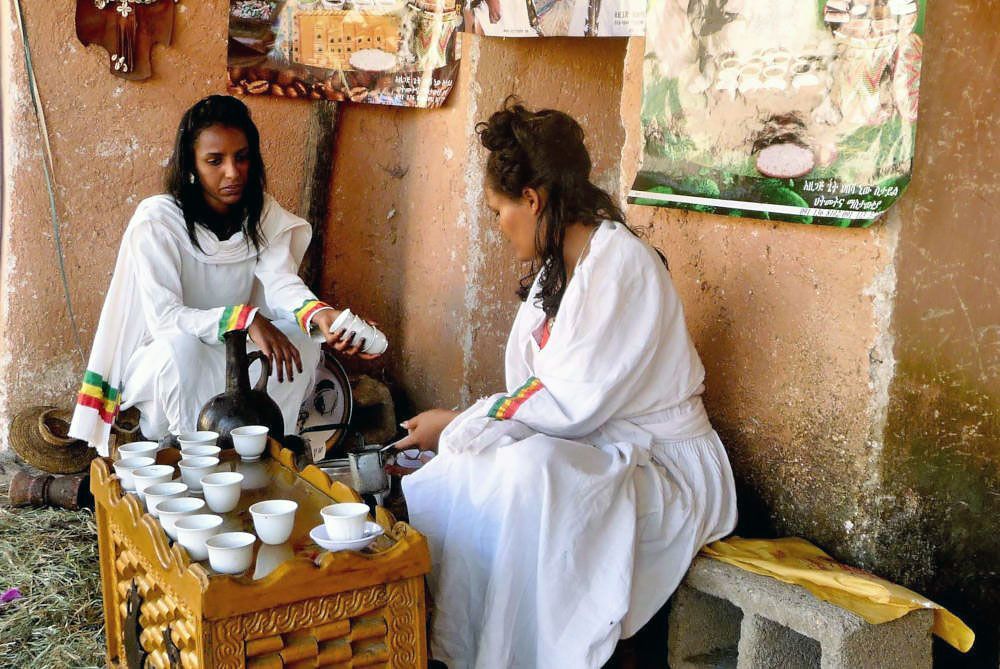Ethiopia is the cradle of coffee. Around 300 years BC, a shepherd in the Kaffa region discovered the coffee bean. Now coffee is a major export product of Ethiopia. Coffee culture is ubiquitous in the country. Therefore, one of the highlights of visiting this country is to witness a coffee ceremony.
Arabica beans
The tastiest coffee starts with the best Arabica coffee bushes that many families have in their backyards. Experts claim that the best coffee beans in the world come from African countries like Ethiopia. Coffee is the country’s biggest export product.
Coffee cultivation is mainly found above 1,200 metres in the mountainous regions of Sidama, Harar and Ghimbi. Picking the coffee berries has to be done carefully and selectively; only the red ripe berries develop the best green coffee beans.
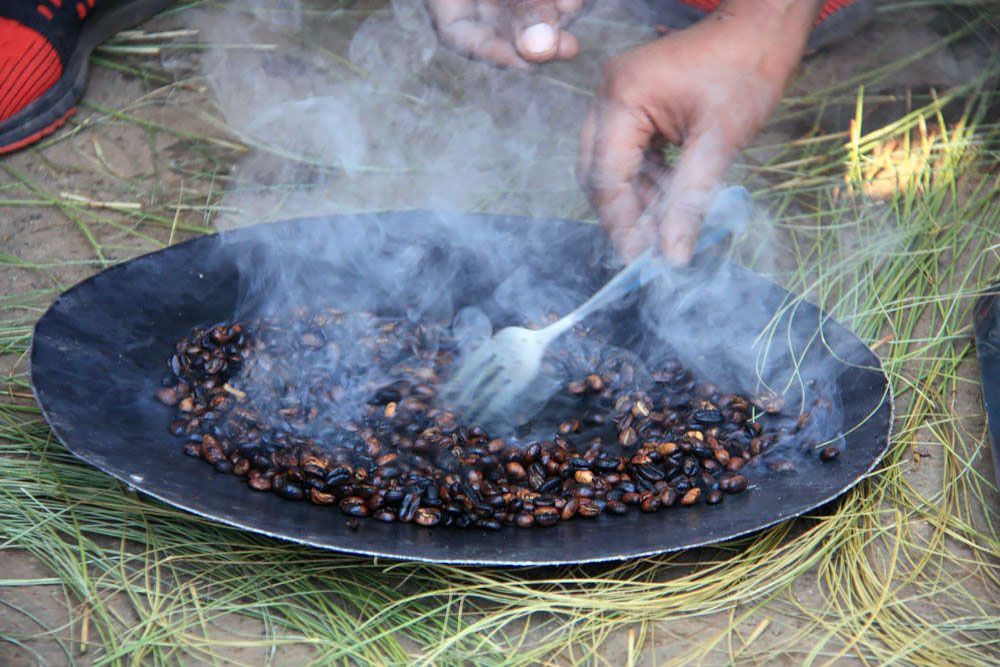
A coffee ceremony
The coffee ceremony is an important social and cultural tradition in Ethiopia. Every household and certainly restaurants have all the necessities to brew a cup of coffee for visitors. A sign of hospitality, friendship and respect.
You should not be in a hurry to experience a coffee ceremony. Keep in mind that drinking a cup of coffee can take an hour. If you want to experience an entire coffee ceremony, you will need between 2 and 3 hours.
The coffee ceremony is performed by the wife or daughter of the house in traditional white Ethiopian clothes. It’s a great ritual that you will encounter all over Ethiopia. A visit to this country is definitely not complete if you have not experienced a coffee ceremony.
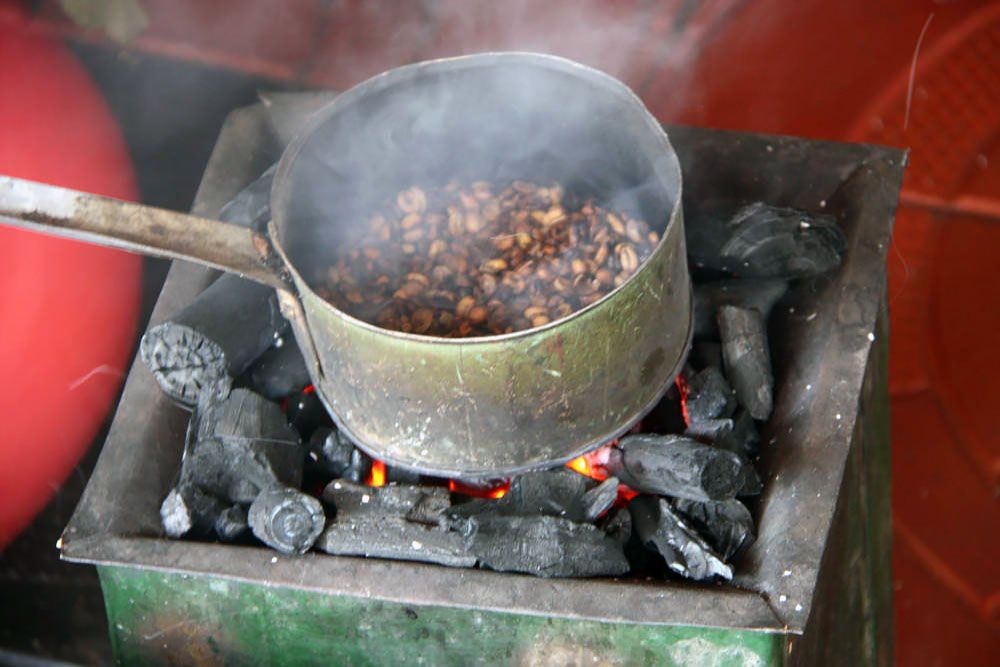
Attributes for the coffee ceremony
First, all the utensils are prepared. These are a low table on which the cups are placed, the Jebena (the coffee pot), a charcoal fire to burn the coffee beans on, the spices (such as frankincense and myrrh) to accompany the ceremony along with the coffee with delicious fragrances and to please God. The ground is sprinkled with fresh grass, not to mention popcorn.
The coffee beans are washed and roasted beforehand. The hostess decides when the beans are ready for coffee. When the beans have a nice glossy colour, she passes the pan around the guests to let them inhale the aroma of the freshly roasted beans. The aromas are spread throughout the room. This way, everyone can enjoy the freshly roasted beans.
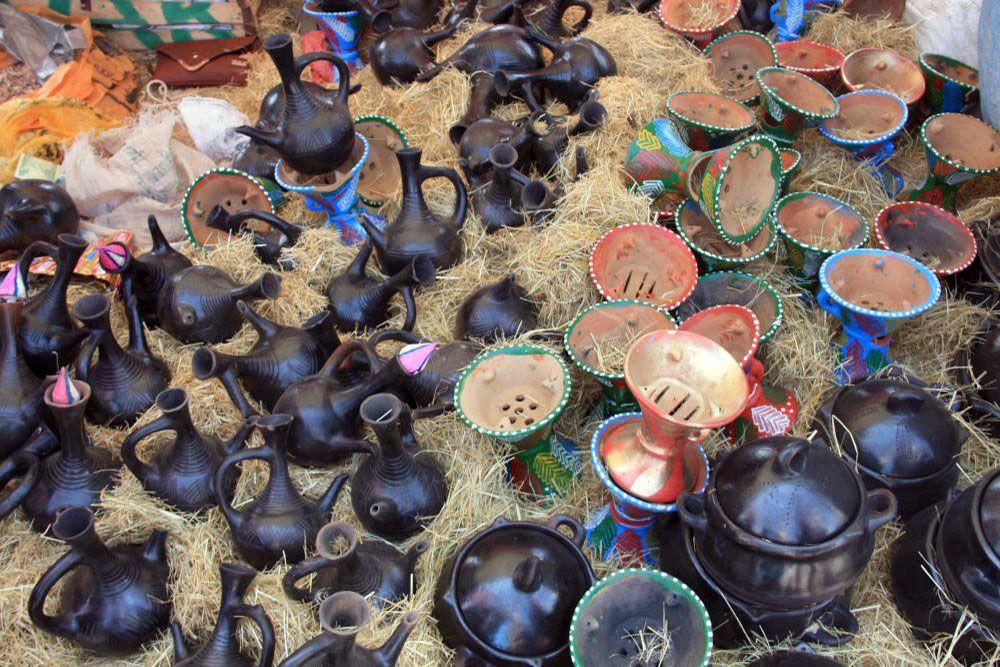
The coffee pot: Jebena
The coffee is then pounded in a mortar and meanwhile the water in the Jebena is brought to a boil. The Jebena is a clay pot that is round at the bottom. At the top, the pot has a small opening for sprinkling the coffee. The round bottom is easy to place in the fire. When the Jebena comes off the fire, the woman places it in a special round made of reeds.
After crushing the coffee beans, they are put in the Jebena with boiling water. Now it is waiting for the coffee to steep enough and be ready to pour. Meanwhile, guests are served the delicious, freshly popped popcorn. When the coffee is sufficiently strong, the hostess expertly pours the coffee. In doing so, she holds the Jebena about 10 centimetres above the small coffee cups.
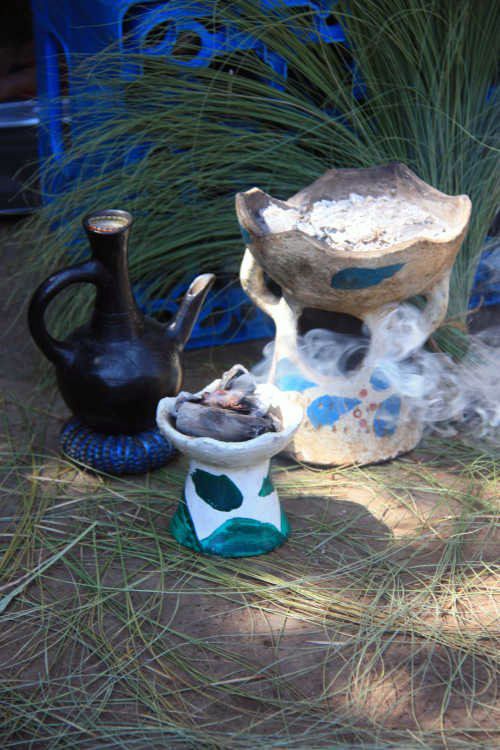
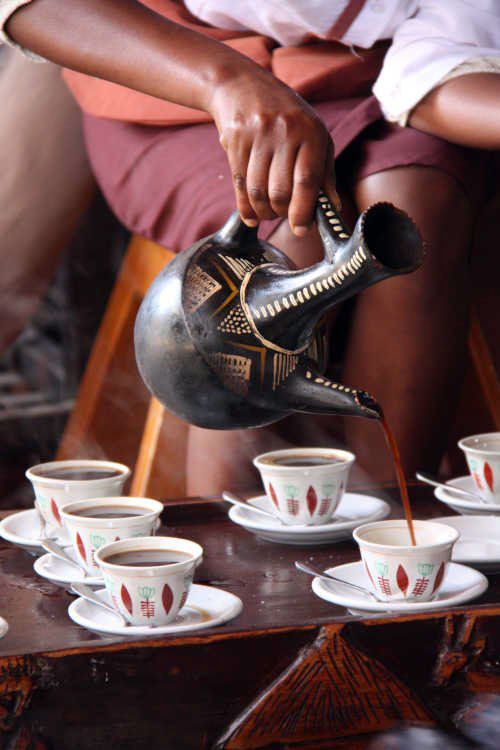
Important ritual
The ceremony is an important part of daily life and takes place in every family at least once a day. It also happens a lot in restaurants after dinner.
It is an important form of hospitality and the Ethiopian takes the time for a cup of coffee. At the coffee ceremony, everyone always sits around the small table talking to each other to maintain contact, have a good chat and exchange news. The ‘quick’ cup of coffee as we know it is only encountered in ‘coffee bars’. For an Ethiopian, drinking coffee is a ritual.
Although there are many coffee shops in Ethiopia, for a nice cup of coffee, it is advisable to visit Tomoca in Addis Ababa. This is one of the nicest and oldest coffee shops in the country. There are now several branches of Tomoca in the city. The one on Wawel street is the most visited and the most beautifully decorated shop, though. Here you not only see the coffee ceremony, but you can have a nice cup of coffee for ± 50 cents and the coffee is freshly roasted. Another pastry is served for lovers.
Coffee etiquette
When someone invites you to attend a coffee ceremony, you really shouldn’t turn down this invitation. If necessary, you can ask a guide to do the talking and apologise if it is not convenient for you. If you really don’t like coffee ask for tea. Just keep in mind that people do not have tea bags in the house everywhere.
